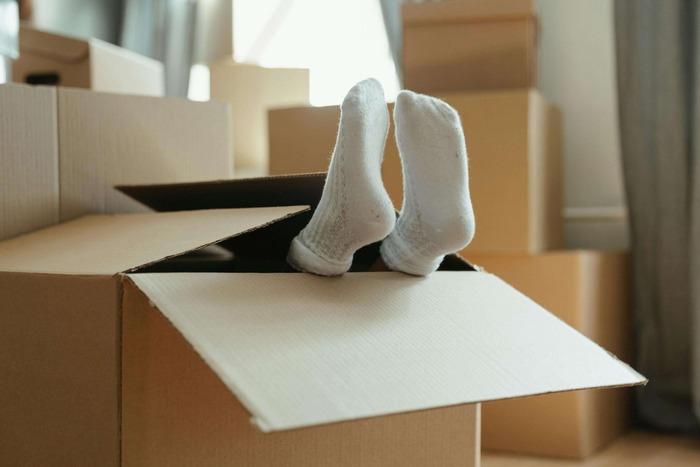Texas Movers: Best Moving Companies for Your Texas Relocation
Get Your Free Moving Estimate
Relocating within Texas can be an overwhelming endeavor, where the expertise of professional movers makes all the difference. As we explore the landscape of texas movers, it’s essential to understand that not all moving companies in Texas are created equal. Choosing the best movers in Texas ensures that your transition is smooth and stress-free. With experienced moving partners, clients can expect reliability, professionalism, and a commitment to quality service.
At Heavenly Move, we recognize the importance of preserving your belongings during the move, providing tailored solutions for both residential and commercial clients. By entrusting your relocation to skilled professionals, you can focus on settling into your new space while we handle the logistics to guarantee your belongings arrive safely and on time.
Key Takeaways
- Selecting professional movers Texas is crucial for a stress-free relocation experience.
- The best movers in Texas offer tailored solutions for residential and commercial moves.
- Experienced movers ensure the safety of your belongings during transit.
- Understanding the differences among moving companies in Texas can help in making an informed choice.
- Trustworthy movers can significantly reduce the challenges associated with relocating.
Understanding the Texas Moving Industry
The Texas moving industry offers a wide array of services tailored to meet various relocation needs. From bustling cities to quieter suburban areas, the demand for reliable moving services in Texas continues to grow. Understanding these services paves the way for an efficient moving experience.
Overview of Moving Services in Texas
Moving services in Texas encompass both local and long-distance moving options. Local movers Texas are essential for customers who need assistance within the same city or nearby areas. Long distance movers Texas cater to those planning a move across state lines or to distant locations. Each type of service provides unique benefits, ensuring a tailored approach to your relocation.
Types of Moving Companies Available
Clients can choose from several types of moving companies in Texas, each specializing in different aspects of relocations:
- Residential Movers Texas: Ideal for families and individuals who require help with household relocations.
- Commercial Movers Texas: Focused on businesses and corporate relocations, ensuring minimal disruption to operations.
- Specialty Movers: This category includes services like piano moving or handling delicate antiques, which demand extra care.
What to Expect from Texas Movers
When engaging with Texas movers, clients can expect several key features:
- Transparent communication throughout the moving process.
- Careful handling of all belongings to ensure they arrive safely at the new location.
- A customer-centric approach that prioritizes individual requirements and preferences.
Understanding these elements helps in choosing a moving service that aligns with your specific needs and expectations. Making the right choice in moving services in Texas is essential for a stress-free relocation experience.
Choosing the Right Texas Movers
Selecting the right moving company is essential for a smooth transition. With numerous options available, we emphasize the importance of evaluating several criteria to ensure your choice aligns with your moving needs. Understanding what to look for in the best movers in Texas guarantees that you receive top-notch service.
Criteria for Selecting a Moving Company
When searching for affordable movers in Texas, consider the following factors:
- Licensing and Insurance: Ensure that the company holds the necessary licenses and provides adequate insurance coverage.
- Experience: Look for professional movers in Texas who have a proven track record and experience in handling moves similar to yours.
- Services Offered: Check what services are available, such as packing, loading, and storage. Different movers offer various packages.
- Pricing: Request detailed quotes to understand pricing structures and find top rated movers in Texas that fit your budget.
Questions to Ask Potential Movers
Asking the right questions can help you gauge the expertise of your chosen movers. Here are key questions to consider:
- What is your experience with moves of this size?
- Can you provide references from past clients?
- What are your policies on damage and loss?
- Do you offer any guarantees or insurance plans?
Checking Reviews and References
Gain insights into potential movers by checking customer reviews and references. Online platforms can provide a wealth of information about customer experiences. Verify how previous clients rated their services, focusing on areas such as:
| Review Source | Rating | Key Points |
|---|---|---|
| Yelp | 4.5/5 | Timeliness, professionalism, and communication. |
| Google Reviews | 4.8/5 | Quality of service and problem resolution. |
| 4.7/5 | Customer support and overall satisfaction. |
Evaluating these aspects helps ensure you choose dependable service when planning your move in Texas. A thorough assessment contributes to positive moving experiences and fosters trust in the professional movers in Texas that you select.
Comparing Texas Moving Quotes

Moving can often be a significant financial undertaking. We understand the importance of getting accurate and transparent estimates from various companies. This helps in comparing moving quotes texas and finding the best fit for your budget. Below, we will explore how to get reliable estimates, the factors that impact moving costs, and the hidden fees you should be cautious of.
How to Get Accurate Estimates
To obtain precise moving quotes, we recommend the following steps:
- Request in-home estimates: Many affordable movers texas provide free evaluations of your belongings, leading to more accurate pricing.
- Provide detailed information: Sharing the size and weight of items and any special handling requirements can help movers give precise quotes.
- Get multiple quotes: Comparing offers from different companies allows for better decision-making and insight into current market rates.
What Factors Influence Moving Costs
Several key factors affect overall moving costs, such as:
- Distance: The miles between your current and new home significantly impact the cost.
- Volume: More belongings typically lead to higher expenses, as they require more labor and resources.
- Additional Services: Extra services like packing, unpacking, or dismantling furniture can increase moving costs.
Hidden Fees to Watch Out For
Being aware of potential hidden fees can save you from unexpected expenses. Common hidden charges include:
- Fuel surcharges: Many movers add fees based on current fuel prices, impacting your final bill.
- Stair fees: If your new home lacks an elevator, additional charges may apply for navigating stairs.
- Packing materials: Some companies charge separately for boxes, tape, and other supplies.
Understanding these aspects will lead to better budgeting for your move, ensuring you make informed decisions while receiving quality services in Texas.
Preparing for Your Move
Preparation plays a crucial role in ensuring a smooth and stress-free moving experience. A well-organized approach can alleviate many challenges associated with relocating. We focus on three key components: creating a moving checklist, organizing your belongings, and adhering to effective packing material recommendations.
Creating a Moving Checklist
A moving checklist serves as a roadmap throughout the moving process. Prioritize your tasks and set deadlines to stay on track. Here are some essential items to include:
- Schedule moving dates and book local movers Texas.
- Prepare an inventory of all items to be moved.
- Label boxes clearly with contents and destination rooms.
- Confirm utility transfers and address changes.
Tips for Organizing Your Belongings
Effective organization can significantly ease the moving process. Follow these strategies to optimize your packing:
- Declutter before packing by donating or discarding unnecessary items.
- Group similar items together to streamline packing.
- Use clear containers for easy visibility of contents.
- Consider a color-coding system for quick room identification.
Packing Material Recommendations
Choosing the right packing materials can protect your belongings during the move. Here are our top recommendations:
| Material | Purpose |
|---|---|
| Bubble Wrap | Protects fragile items such as glassware and ceramics. |
| Cardboard Boxes | Ideal for efficient packing of clothing, books, and kitchen items. |
| Packing Tape | Securely seals boxes to prevent accidental openings. |
| Moving Blankets | Offers extra protection for larger furniture during transport. |
| Marker Pens | Used for labeling boxes and ensuring quick identification. |
Overall, these packing material recommendations will assist in safeguarding your items as you prepare for the journey ahead.
Interstate Moves within Texas
Moving across state lines can be an intricate process, especially within the vast landscape of Texas. Understanding interstate moving regulations is crucial for both the safety of your belongings and your peace of mind. It’s essential to collaborate with skilled professionals who can navigate the logistical challenges associated with long-distance movers in Texas.
Regulations for Interstate Moving
Before embarking on your interstate move, familiarize yourself with the regulations that govern these transitions. Key aspects to consider include:
- Licensing requirements for moving companies
- Insurance options and coverage details
- Client rights and responsibilities
Ensuring compliance with these interstate moving regulations protects your interests and helps avoid potential pitfalls during the relocation process.
Logistics of Long-Distance Moves
Long-distance moves demand exceptional planning and execution. Professional movers in Texas offer the expertise necessary for effective route planning, scheduling, and transportation. Here’s what to consider:
- Optimal timing for your move
- Tracking your belongings during transit
- Coordination for smooth delivery at the destination
Working with experienced long-distance movers allows you to focus on settling into your new space rather than stressing over logistics.
Special Considerations for Large Items
When moving large or specialty items, particular care is essential to ensure their safe transportation. Aspects to consider include:
- Proper packing materials to prevent damage
- Special handling requirements for fragile items
- Space considerations in the moving truck
Engaging professional movers in Texas who understand these unique needs will significantly enhance safety and efficiency in your interstate relocation.
Local Moves in Texas
When planning a local move in Texas, we aim for a smooth and efficient experience. Understanding how to optimize logistics will make your transition easier. We can explore effective strategies for managing your move, the importance of timing, and essential local moving tips that enhance collaboration with your movers.
Strategies for an Efficient Local Move
To ensure your local move in Texas goes smoothly, consider these strategies:
- Plan your moving day during off-peak hours to avoid traffic delays.
- Communicate clearly with your local movers Texas about your specific needs.
- Organize your belongings by categories to simplify packing and unpacking.
- Label boxes with their contents and the intended room for easy identification.
Timing Your Local Move
Selecting the right time for your move can significantly impact the experience. Pay attention to:
- Avoiding peak moving season, typically during summer months.
- Scheduling your move mid-week to reduce costs and competition for local movers Texas.
- Checking local events and holidays that might affect traffic and availability.
Essential Local Moving Tips
Here are some essential local moving tips to stay organized and focused:
- Establish a detailed moving checklist to track tasks leading up to the move.
- Get quotes from several residential movers Texas to find the best deal.
- Stay in communication with your movers throughout the process for seamless coordination.
- Allow yourself time to adjust as you settle into your new space, giving priority to essentials like utilities and personal items.
Fragile and Specialty Item Moving
Moving fragile and specialty items requires meticulous attention to detail and specific strategies to ensure their safety during the transition. This section will guide you through the best practices for handling delicate belongings, including how to safeguard valuable antiques and art pieces. We will also address the transportation of vehicles to minimize damage during your move.
Handling Fragile Items with Care
When engaging in fragile items moving, we emphasize the importance of proper packing techniques. Follow these tips to keep your delicate items secure:
- Use high-quality packing materials like bubble wrap, foam peanuts, and sturdy boxes.
- Label boxes as “Fragile” to alert movers and ensure extra caution.
- Wrap each fragile item individually to prevent movement and collisions during transit.
- Fill empty spaces in boxes with cushioning materials to avoid shifting.
Moving Antiques and Art
Specialty item moving extends to antiques and artwork, which often hold significant sentimental and monetary value. To adequately protect these treasures, consider the following:
- Consult professionals with expertise in moving antiques and art.
- Utilize custom crates or wooden boxes specifically designed for high-value items.
- Maintain climate control when transporting art to protect it from temperature fluctuations.
- Document your pieces and their condition before moving for insurance purposes.
Transportation for Vehicles
Vehicles require unique considerations during a move. For vehicle transportation, we suggest:
- Choosing an enclosed transport option for added protection against weather and road debris.
- Disconnecting the battery and draining gas before transit to prevent fire hazards.
- Documenting any existing damages to establish a baseline for insurance claims.
- Checking for the transport company’s insurance coverage to safeguard your vehicle.
| Item Type | Recommended Packing Method | Special Considerations |
|---|---|---|
| Glassware | Bubble wrap and sturdy boxes | Label as “Fragile” |
| Artwork | Custom crates or canvas bags | Climate control during transport |
| Antiques | Wooden boxes with padding | Consult specialists for valuable pieces |
| Vehicles | Enclosed transport or flatbed | Document condition and battery disconnection |
Post-Move Settling In
Transitioning into a new home can be both exciting and overwhelming. We understand that post-move settling in is crucial for establishing comfort and a sense of belonging. To facilitate this process, we have developed effective unpacking strategies, provided guidance on setting up utilities, and suggested ways to connect with your new community.
Unpacking Strategies for a Smooth Transition
Unpacking doesn’t need to feel like a daunting task. Implementing clear unpacking strategies can lead to a smoother transition. Here are some tips:
- Begin with essentials such as kitchenware, toiletries, and clothing.
- Organize your belongings by room to allow for efficient unpacking.
- Set a daily goal for unpacking to avoid feeling overwhelmed.
- Utilize boxes and materials that can be easily repurposed or recycled after unpacking.
Setting Up Utilities and Services
Setting up utilities should be a priority to ensure a comfortable living environment. Here’s a checklist for a seamless experience:
- Contact your electricity provider to start service in your name.
- Schedule internet and cable installation early to avoid delays.
- Ensure your water and gas services are activated prior to moving in.
- Consider setting up garbage and recycling collection services.
Connecting with Your New Community
Building relationships in your new neighborhood can enhance your post-move settling in experience. Engage with your community by:
- Exploring local shops and restaurants to discover what your area has to offer.
- Joining local clubs or recreational groups that match your interests.
- Attending community events, festivals, or farmers’ markets.
- Introducing yourself to neighbors and participating in neighborhood associations.
Common Moving Mistakes to Avoid
Moving can be a daunting task, and avoiding common moving mistakes is essential for a smooth transition. By understanding and addressing typical planning pitfalls, packing blunders, and last-minute decisions, we can ensure a less stressful relocation experience. Here’s a closer look at these critical areas to watch for during your upcoming move.
Planning Pitfalls
One of the first steps in a successful move is effective planning. However, many overlook the importance of proper scheduling a move and may end up confronting unexpected obstacles. Failing to secure necessary permits, miscalculating timelines, or not accounting for potential delays can lead to a chaotic moving day. It’s crucial to create a detailed timeline that includes all necessary tasks, allowing ample time for each step of the process.
Packing Blunders
Packing blunders can not only damage belongings but also increase stress during the moving process. Inadequate labeling of boxes or using inappropriate packing techniques can leave you scrambling to locate essential items in your new home. Always ensure that boxes are securely packed and clearly labeled. This thoughtful preparation can save time and prevent frustration during unpacking.
Last-Minute Decisions to Sidestep
Last-minute decisions can often lead to poor outcomes in your moving experience. Rushing through the final moments can result in hurried packing or a lack of communication with movers, both of which can contribute to disorganization and miscommunication. To sidestep these risks, ensure all details are confirmed well in advance and that everyone involved in the move is on the same page regarding timing and responsibilities.


